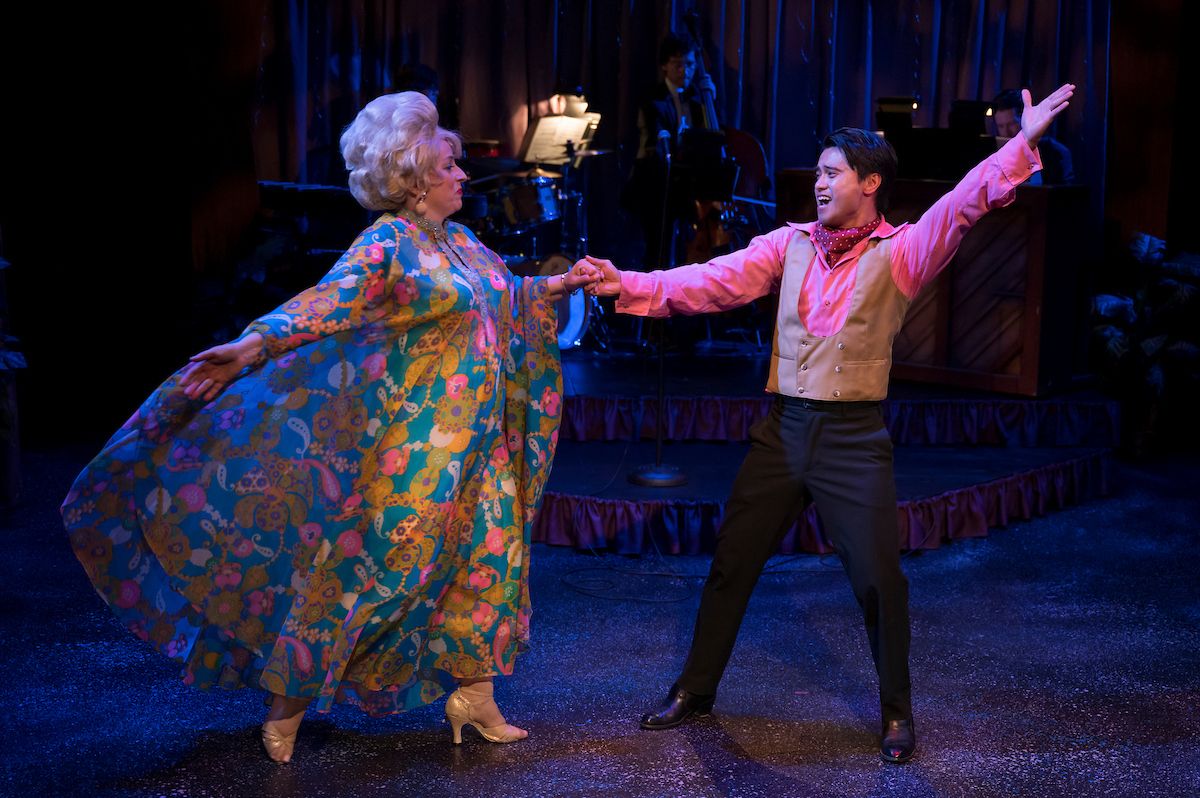The life of a working musician in Edmonton is often one of constant oscillation between two thoughts, like an angel and a devil sitting on your shoulder.
The angel looks around and tells you, “Man, what a wonderful city we have! There are clubs and bars and the Yardbird Suite and so much theatre!” This is the part of you that loves the city and wants to keep building on the foundation of its rock-solid music community. But then, there is the devil and his temptations.
“Go to Toronto, idiot. This is small time. You’re gonna make it big in the big city.”
This conundrum isn’t privy to just musicians, nor is it a new phenomenon. It’s something with which creatives in cities like Edmonton have been familiar for decades. But in true Edmonton fashion, writers Jocelyn Ahlf and Andrew Macdonald-Smith wrote a musical about this creative wanderlust. Everybody Goes to Mitzi’s is a comedic and romantic exploration of a common feeling in a familiar place but at an entirely different time.
For Music Director Erik Mortimer, it’s a very meta experience. To be both performing as a musician while also being on the stage as a musician in this world of 1960s Edmonton supper clubs is something different.
“The band is always hanging out, either playing cards or playing music,” Mortimer says. “I notice that we never go on break.”
The experience is also personal for many reasons. As a musician himself, he sees a lot of what the characters experience in his own life. But also, when Mortimer was a student in the Jazz-focused program at MacEwan University, it was common for the late jazz legend Tommy Banks to come by and spend time with students.
There, Banks would share stories about the scene in the ’60s and ’70s, how things were for musicians, and how there used to be a law that let bars stay open later if they had a live band playing. Now Mortimer gets to help portray the very same world that Banks knew so well.
“Tommy’s contribution to the jazz scene was really huge,” says Mortimer. “There’s a bit of a call out to Tommy, I think, not necessarily in the musician’s characters, but in the character of Jack.”
